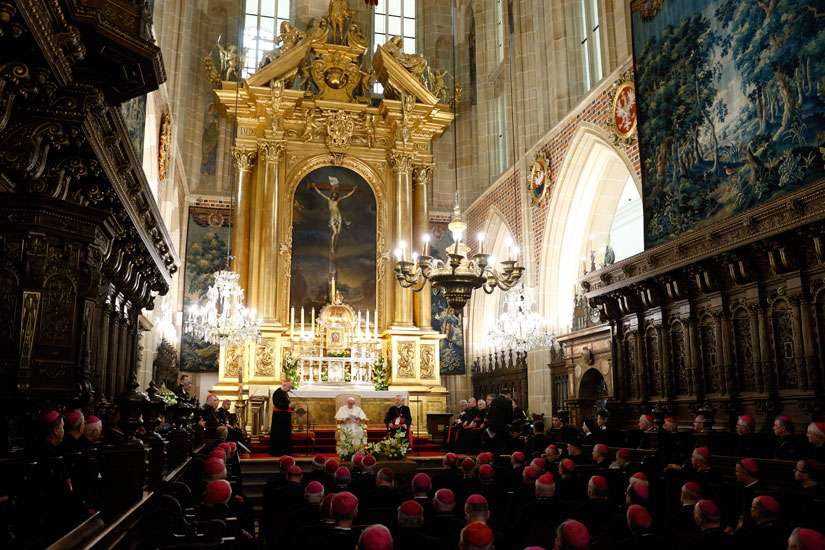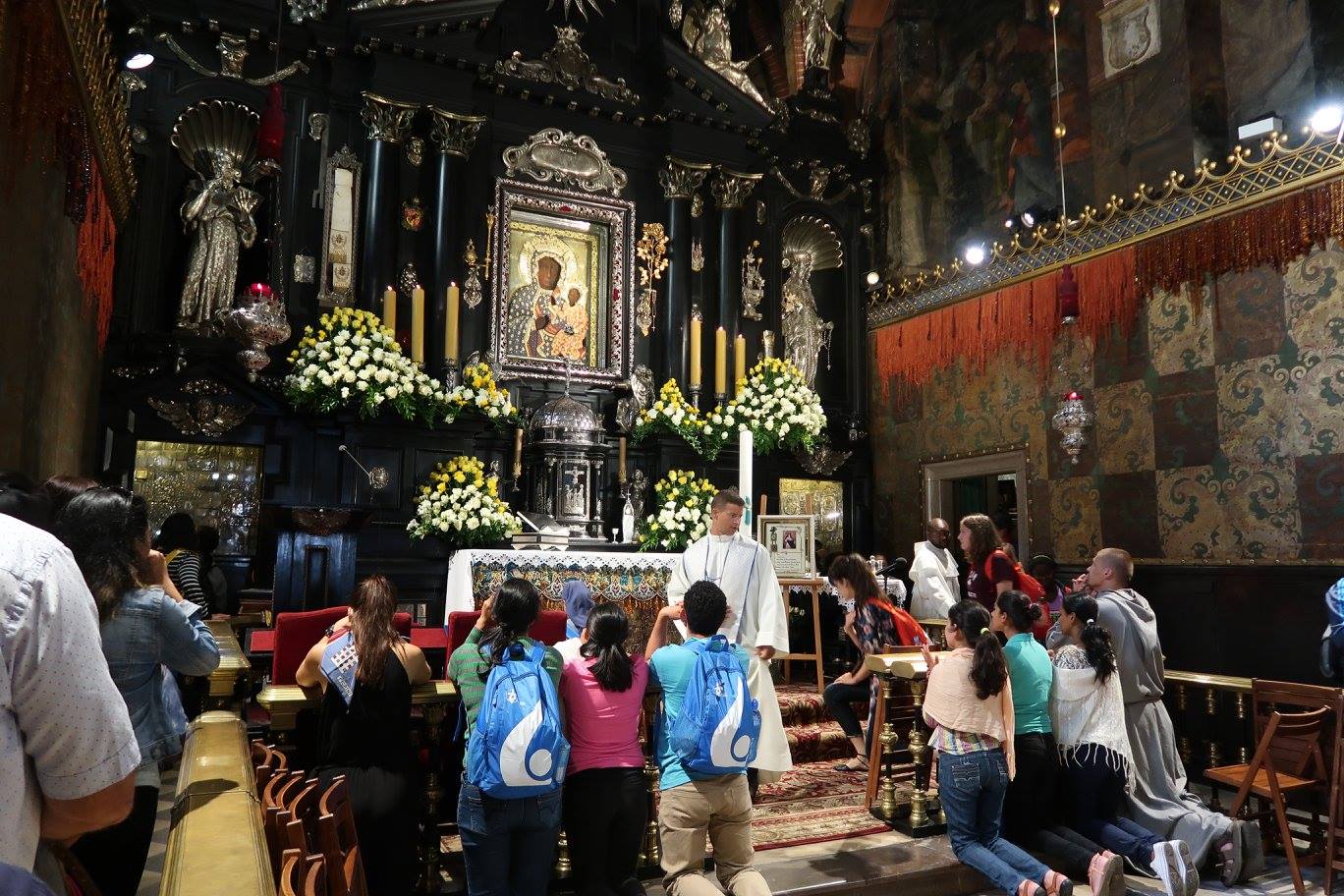"The Holy Father acts on the principle that general issues are difficult to settle in every individual case, and in every country and continent," Archbishop Stanislaw Gadecki of Poznan, president of the Polish bishops' conference, told media July 27.
"This is why he speaks about decentralization, so that a bishops' conference in a particular country can formulate its own perspective, not only in how it applies papal directives, but also in finding the right solutions in its own situation."
Pope Francis met with the 117-member bishops' conference in Krakow cathedral, following his formal welcome by President Andrzej Duda and Polish government leaders.
The meeting with the bishops had been keenly anticipated by Poland's media, some of which have reported disagreements within the Polish church over aspects the Pope's teaching – including his repeated appeals for the sheltering of refugees, which has been resisted by Poland – since his March 2013 election.
At an evening press conference, Archbishop Gadecki said the Pope had asked for the meeting to be closed so participants could be "free of pressure and speak out without fear."
Archbishop Wojciech Polak of Gniezno said the talks had been conducted in a "very warm atmosphere," adding that Pope Francis had surprised the bishops by urging them to ensure the elderly were not "marginalized and forgotten" during World Youth Day.
"His reminder that the elderly should also be loved, helped and embraced was a beautiful instance of how Divine Mercy can be applied in our national life," the archbishop said.
Earlier in the day, Pope Francis arrived at Krakow's John Paul II Airport to attend World Youth Day, which is being attended by up to 2 million young people from 187 countries.
Welcoming Pope Francis to the cathedral meeting, Archbishop Gadecki said the Pope's task was to "care for the unity, wholeness and inviolability of Christ's teaching."
He added that World Youth Day's theme of Divine Mercy was "strongly linked" to Poland's Sts. Faustina Kowalska and John Paul II, and added he hoped Pope Francis would help the country's Catholic Church fulfill its task of "strengthening Europe's Christian roots and preparing the world for Christ's second coming."
"We know that nothing in this world can be taken as achieved once and for all," Archbishop Gadecki told the Pope.
"Each generation must take possession of the traditions and values passed down to it, ensuring that the received gifts of devotion, faith and courage bear fruit once more in a new epoch and in different circumstances."





